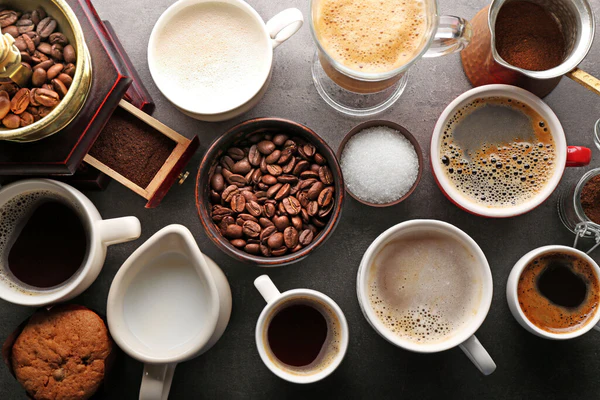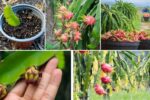Coffee is one of the most beloved beverages globally, consumed by millions of people every day. From espresso to cappuccino, coffee’s rich aroma and energizing qualities have made it a staple in many cultures and economies. But have you ever wondered which country is behind the massive global supply of this magical bean? The answer is clear and consistent: Brazil.
A Brew of History and Agriculture

Brazil has held the title of the largest coffee producer in the world for more than 150 years. Its dominance began in the mid-19th century and has continued through fluctuations in global demand, climate change, and economic crises.
Brazil’s journey into the world of coffee started in the early 1700s when coffee plants were introduced into the country by Portuguese colonists. The ideal combination of tropical climate, rich soil, and vast land area allowed Brazil to quickly expand coffee cultivation. By the 1840s, Brazil had become the world’s leading coffee producer, and it has not looked back since.
Current Coffee Production Statistics

According to the International Coffee Organization (ICO) and the United States Department of Agriculture (USDA), Brazil produces approximately 60 million 60-kg bags of coffee annually, accounting for nearly 35-40% of global coffee production.
Brazil cultivates two main types of coffee beans:
- Arabica (Coffea arabica): Known for its smooth, nuanced flavor, Brazil is the world’s largest Arabica producer, contributing more than 70% of its total production.
- Robusta (Coffea canephora): While Brazil also produces Robusta, it is grown in smaller quantities compared to Arabica.
Key Producing Regions in Brazil
The country’s vast geographical diversity supports multiple coffee-growing regions, including:
- Minas Gerais – The top-producing state in Brazil, famous for its high-quality Arabica beans. Within it, areas like Sul de Minas and Cerrado Mineiro are well-known globally.
- Espírito Santo – Leading in Robusta production, also contributes a significant share of Arabica beans.
- São Paulo – Historically important, especially the Mogiana region.
- Bahia – An emerging player in both Arabica and Robusta cultivation, known for its innovative irrigation systems.
Why Brazil Dominates the Coffee Industry

Several factors contribute to Brazil’s unmatched dominance in coffee production:
1. Ideal Growing Conditions
Brazil’s climate features warm temperatures, plentiful rainfall, and diverse altitudes. These conditions are perfect for growing both Arabica and Robusta coffee varieties.
2. Large Land Availability
Brazil has the largest agricultural land area dedicated to coffee cultivation in the world — over 2 million hectares. This massive space allows for both small family-run farms and large-scale plantations.
3. Advanced Agricultural Techniques
Brazilian farmers utilize cutting-edge technology, including:
- Mechanized harvesting
- Drip irrigation
- Satellite imaging
- Disease-resistant coffee plant varieties
These innovations significantly increase yield and reduce labor costs.
4. Strong Domestic and Export Markets
While Brazil exports over 70% of its coffee, it also has a massive internal market. Brazilians are among the world’s top coffee consumers, creating a robust domestic demand that stabilizes the industry.
5. Government Support and Infrastructure
Brazil’s government offers extensive support to coffee growers through research institutions like EMBRAPA (Brazilian Agricultural Research Corporation) and CONAB (National Supply Company), which assist in yield improvement and international marketing.
Brazil’s Global Coffee Trade Impact
Brazil’s coffee exports reach more than 120 countries, with the largest markets being:
- United States
- Germany
- Italy
- Japan
- Belgium
In 2024 alone, Brazil exported over $8 billion worth of coffee, making it one of the country’s most lucrative agricultural exports.
Brazilian coffee has gained recognition in the specialty coffee sector as well, with increasing attention on single-origin beans and sustainable farming practices. Coffee competitions and certifications, such as the Cup of Excellence, have further raised the profile of Brazilian coffee growers globally.
Challenges Faced by Brazil’s Coffee Industry

Despite its dominance, Brazil’s coffee sector is not without challenges:
1. Climate Change
Unpredictable weather patterns, droughts, and frosts have increasingly impacted harvests. The 2021 frost, for example, severely damaged coffee trees and reduced production for multiple years.
2. Global Price Volatility
International coffee prices are often subject to speculation and economic instability, affecting farmer incomes.
3. Labor Shortages
As Brazil relies more on mechanized farming, there is a declining labor force in traditional coffee cultivation areas.
4. Environmental Concerns
Large-scale plantations have raised issues regarding deforestation, water use, and biodiversity loss. However, Brazil is working to implement more sustainable practices in coffee farming.
Future Prospects for Brazil’s Coffee Industry
Despite challenges, the future of Brazil’s coffee industry remains promising. The country is heavily investing in:
- Climate-resilient coffee varieties
- Agroforestry systems
- Organic and fair-trade certifications
- Digital platforms for direct-to-consumer coffee sales
These developments not only enhance productivity but also appeal to environmentally conscious consumers globally.
How Other Countries Compare

Though Brazil leads by a significant margin, several other countries also play major roles in global coffee production:
| Rank | Country | Annual Production (60kg bags) | Main Type |
|---|---|---|---|
| 1 | Brazil | 60 million+ | Arabica & Robusta |
| 2 | Vietnam | 30 million+ | Robusta |
| 3 | Colombia | 14 million | Arabica |
| 4 | Indonesia | 11 million | Robusta |
| 5 | Ethiopia | 7 million | Arabica |
Vietnam is Brazil’s closest competitor but primarily grows Robusta beans, which are used in instant coffee and blends. Colombia, while third, is globally renowned for its high-quality Arabica beans.
Conclusion
When it comes to coffee production, Brazil remains an undisputed global giant. With a legacy rooted in history, a climate suited for coffee cultivation, and a continuous embrace of innovation and sustainability, Brazil has cemented its role as the world’s largest coffee producer.
As global coffee consumption continues to rise, Brazil’s strategic investments in technology, climate resilience, and market diversification ensure its continued leadership in the international coffee landscape. Whether you enjoy a rich espresso or a smooth pour-over, there’s a good chance your favorite cup of coffee began its journey in the lush fields of Brazil.





